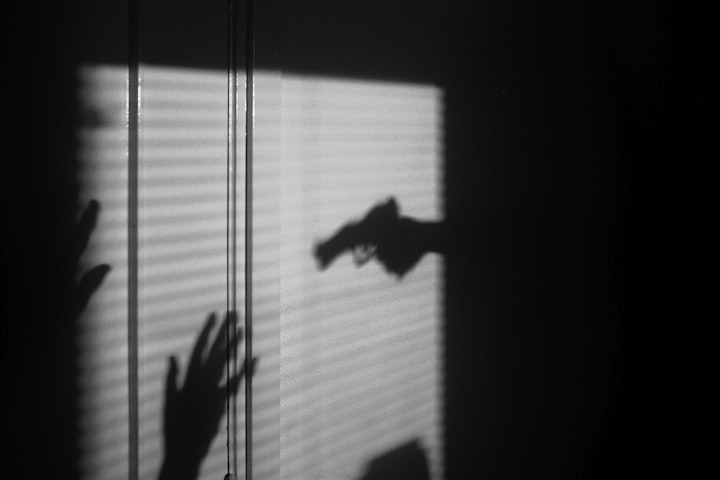Unsung Hero Dreamt of Helping Children
the bamboo schoolhouse

After two and a half years of trying to reinvent me in Bali. I faced the prospect of ending up as a 60-year-old vagrant on my stepmother’s doorstep. The building process on my Ubud, Bali villa had depleted my financial resources. and much of my resilience. I had bookings for the villa, but not enough savings to get me through days or weeks of vacancy. I couldn’t bear the thought of losing the place. Having to leave my Tuti (my wife), and head out, yet again, on that unmarked highway.
In preparing the villa for an upcoming guest. I reflected upon how far I had come, and how much my Indonesian wife and I had accomplished together. The hard work of establishing the guest house was past us. The land and the house were blessed by the Balinese.
Blood, sweat, and blessings would usher in better days. I noticed a hoop, left by my last retreat promoter — cat woman and began to ponder the circular nature of things.
I congratulated myself for adapting to life on the equator, the center ribbon of the planet. In short, I felt no centrifugal force where I sat. The further away from the center, the more my head would spin.
With no one looking, I slipped the hoop over my head and tried several times to circle it around my neck, arms, and waist. I could not sustain the momentum and the hoop fell to the ground. I soon stopped trying to force it — and my body — into doing something that it did not want to do. By holding it up to the sky, the hoop revealed itself as a portal. I saw a serpent eating its tail, symbolizing birth, and rebirth, the cyclical nature of life. And I saw myself evolving through the center of the lens, the telescope now reversed.
I understood the metaphor of the reversed telescope but had not experienced it. In childhood, looking ahead at life is like looking through the small end of the telescope. The view is expansive; life’s end, a distant vanishing point. “Senior” years, one’s perspective on life is like looking through the opposite end of the telescope. When I looked through the portal at age 60, the vanishing point appeared right under my nose.
Losing the villa would dump me, full circle, back to my beginning in Bali. And I would have no money to rebuild my life there. I still had time to make this work for Tuti and me. I could see far beyond a clearing in the jungle. And admire the garden that Tuti was tending, beyond the villa’s doorstep.
I felt fortunate to get a long-term booking and looked forward to receiving my next guest. Catherine Amrit (not her real name). Months earlier, Catherine had contacted me through Facebook, inquiring about renting the villa. We agreed to meet a few days later at the opening to the Monkey Forest in Ubud. When we first met, I learned that she was from England, was single, and had no children. She described herself as a seasoned traveler and a teacher on a pilgrimage.
“I’ve been traveling in Asia for the past year,” she told me. “I’ve been a teacher in Vietnam. I’ve traveled the back roads of Cambodia, and lived in Nepal.”
I gave her a ride through the dark jungle of the Monkey Forest, back to her room in Nyuh Kuning. She gave me a rental deposit — and a hug — and said that she’d be back in two months.
In the short time, I spent with Catherine. She struck me as the type of role-model teacher who could have helped me as a struggling youth. She seemed like the kind of teacher who could change your life. The teacher you never forgot. the one for whom you spent the day polishing the biggest, brightest, red apple to place on her desk. I sensed that she could bring out the best in her students. If she asked for a volunteer to stay after class, every student would raise a hand.
I met Catherine on her second trip to Bali. When she returned on her third visit, she was ill. In Nepal, she was hospitalized for more than two weeks with dysentery. She had black rings under her eyes. Part of the lingering, visible effects of dehydration and exhaustion.
I showed her around the villa. To the best of her ability, she tried to follow. After a few minutes, she stretched out on the couch and propped her head up on a pillow. Her voice was raspy from even that little bit of exertion. She pulled back a strand of blonde hair, which fell halfway down her neck and continued to talk.
She asked if she could smoke inside the villa. I told her that she could smoke outside. Then she asked how she could get some food. Since she was so sick, I went to a local warung and brought a meal back for her. When I returned with her food, we resumed our conversation.
She said she started to “feel bad” again a few days earlier. I gave her the number of the local clinic and suggested she go there if she still felt ill in the next few days. Then I asked her about her plans for this stay in Bali.
“I have ideas for new art in the education business in Bali,” she told me. “I’m also interested in creating a foundation in Nepal that will help disadvantaged youth. I plan to use film and drama.” She added, “Also, I want to work on my book. It’s about my parents. I have some serious issues I want to work out.” She asked whether I knew any therapists.
I admired her gumption. I told her that I was working on a book, too, and offered to help with her writing. I also shared that I had my issues to resolve with my parents that I was working on.
During the next two days, I often checked in on her. Most of the time she slept through the day, too weak to get up and around. Then she sent me a text message, asking me to come by. I ended up arranging a ride for her to the hospital. Diagnosed with a viral form of dysentery, as well as a bladder infection. She received antibiotics for the infection. And told no medicine could treat dysentery. But it should clear on its own within a week.
Several more days passed. While Catherine recovered, Tuti and I continued to stop by, clean the villa, and change her linen. I also found a maid to cook and run errands for her until she felt better. The antibiotics must have helped, because she began to perk up, and planned to soon renew her visa in Bangkok.
The next 36 hours changed everything.
First, Catherine told me about two unusual occurrences at the villa.
On May 19, at 7 p.m., she called to tell me that she saw a “cross-eyed man with a flashlight” sitting on the villa’s fence. When she told him to leave, he exposed himself, then ran away. When I asked neighbors about this person. I learned that there is a local man considered to be a mentally disabled, “harmless nuisance.” He frequents the area. I told them that in the Western world, this behavior is an illegal act called “indecent exposure.” Catherine felt shaken by the encounter. I told her that the next day we could take a look at the construction workers next door.
On the morning of May 20, Catherine, Tuti, and I stood before a crew of seven workers from Maduran, Java. Catherine determined that “the flasher” was not among them. I asked her if she wanted to file a police report on the cross-eyed man. She responded with compassion, “No, not if it means he’ll go to jail.” Before we walked away, one of the workers, who called himself “Samsul,” said, “Don’t worry, boss. I will watch over your house.”
At noon, Catherine called me again. She said that two local girls came to the door, asking for work. She had no jobs for them, and they left without further incident. They knew that she had a maid, and were hoping to make a little money themselves. While unusual, the visit by the young girls wasn’t troubling. Still, I reminded her to latch the gate and lock the doors. That night, Catherine did not return my calls, nor was she online. I often found her sleeping in a bed during the day, and I thought it best to let her rest.
The next day, May 21, was the Balinese holiday of Galungan. The maid went to the villa to make the traditional ceremony for the victory of dharma over adharma. This marks the time when the ancestral spirits visit the Earth. Because Catherine’s motorbike was gone, the maid assumed she was out. She noticed that the door was open, but did not suspect anything amiss. The work crew from next door had left for the holiday.
On May 22, at 4 p.m., I began to worry when Catherine did not answer my second phone call to her. I went over to check in on her and bring fresh towels. When I arrived, her motorbike was still gone. The doors were wide open, and I noticed that one of the sliding glass doors hung unhinged. I shouted from the steps
“Hello, Catherine. Are you home?” There was no answer.
Out of concern, I decided to step in and look around. I entered the living room, then passed the open bedroom door. I looked closer, then froze in terror. Catherine’s lifeless body lay on the bedroom floor, her face covered with a black cloth.
My adrenalin kicked in, my heart pounded, and my fists clenched in sweat-drenched fear. Every part of my body started to shake. I fumbled for my cell and realized I hadn’t brought it. The landline worked, but I thought it quicker to steer straight for help in person.
I met the owner of a nearby resort, where I managed to get out a few stutter-gasped details. He called the local village security. I returned to my other home to tell Tuti about a possible murder. Tuti left immediately to go to the police station. I was in shock. After the police inspected her body they said, “This is the first foreigner murdered in Ubud.”
The police placed Tuti and me in separate rooms. And questioned us until 5 a.m. We cooperated and offered as much information as we could. I sat next to a young Balinese detective who took my statement down on his manual typewriter.
The non-English-speaking detective struggled to get my facts straight. Emotions ran high. I could see a tear in an officer’s eyes over this tragedy, and the worry on their faces. Occasional break-ins and purse-snatchings are troubling enough. I sensed that they felt as though their reputation was on the line; the safety of Ubud itself.
“Is this a witness statement or a confession of guilt?” I asked. “Do I need a lawyer?”
The detective pointed to a word at the top of the document, Saki (witness) statement. I must have repeated my story a dozen times before the police finally brought Tuti back into the room. She looked petrified.
With Tuti at my side, the officers took both of our statements and cross-examined our accounts. Satisfied that our information and accounts matched. They then allowed us to order some food, and get some fresh air. We sat outside on the curb, in front of the station. Tuti, who had quit smoking cigarettes, started chain-smoking.
How could the police department function in developing Ubud? The station lights flickered, the toilets had no water, and the Internet was dead. At least, using manual typewriters was faster than writing down statements by hand.
Around 2 a.m., I thought to check Catherine’s cell phone. To my utter disbelief, her phone was active. I heard ringing, but no answer. Then, five minutes later, came the return call. I jumped up and handed the detective my phone. Why the police didn’t check her phone first, I had no idea. I gave the Balinese police a lot of credit, though. With little more than bare fists and cell phones, they would not rest until the case was solved. I hoped that they had GPS tracking capability. I didn’t know after the confirmation of her cell working what the police plan was.
When the police obtained a copy of Catherine’s I.D., they confirmed that the dead woman was Catherine Amrit. Evidence, they said, indicated that she was beaten, raped, and strangled. Tuti was already crying, and I joined her. The trouble for me was Catherine failed to register her passport with the police when she moved in. So, they blamed me and the US 20,000 fine that came with it.
A few years earlier, Tuti had worked as an informant for the East Java police. Her former boss became the number two commander in the Bali police department in Gianyar. Because of that chance relationship. Tuti was able to save us from scrutiny and the huge fine. The police let us return home, and placed us under “soft, house arrest.” We were not under suspicion, we were free to move about as we pleased, but they did not want us to leave Bali.
We were also sworn to silence. Anything we said that conflicted with police statements was interfering with police business. That could subject us both to jail time, and, in my case, deportation.
The first break in the case came when the Balinese construction boss lied about a worker he hired. The worker came from Java. His real name was Hambali. He often worked under assumed names, because he had a criminal record for theft. The next break came when police traced Catherine’s phone and motorbike to the Java city of Surabaya.
Through further investigation. Police caught the suspect and arrested him in his new apartment in Jakarta. The suspect confessed he broke away from the crew. And returned to the building site alone on Monday, May 21. Committed the crime on Tuesday, May 22, then left Bali that night at 10 p.m. on Catherine’s motorbike.
Police also arrested the construction boss. Confiscated the workers’ tools, and halted construction due to the lack of permits.
Meanwhile, news of the crime reached the international press.
On June 9, 20 days later, police escorted Hambali to the villa to reenact the crime. He arrived in handcuffs, head down, and avoided eye contact. Chills ran through me when I immediately recognized him in his orange prison suit. He was the same worker who promised, “Don’t worry, boss. I will watch over your house.” His name was not Samsul, as he had said; it was Hambali.
The 32-year-old criminal looked more like a street beggar than a person capable of murder. Hambali was short and paper-thin; less than five feet tall. 120 pounds. His bony face bore the nondescript mask of ignorance and poverty. His home was the area called Tangerang, part of greater Jakarta but in West Java.
He began by saying that he had crept in through the front door. If his account is correct, he did not break-in. At this point, how and when the door went off track is unclear. On his way out? But there did not appear to be signs of forced entry.
In brief, he said that Catherine was sleeping. He raped and strangled her, which ended in a pool of blood on the floor. Satisfied that she was dead. He got a knife. Picked a cabinet lock, stole her money, grabbed her laptop, phone, camera, and sped away on her motorbike. In 15 minutes, the life of a caring, loving, 49-year-old teacher dead.
In June 2013, Catherine attended Awesomeness Fest. And in February of 2014, she attended iLAB Accelerator (Entrepreneurs Institute) in Ubud. She wrote that both programs helped her focus on a new path “aligned with passion and purpose.” She looked forward to her projects in Bali and Nepal and working on her book. I looked forward to working with her on the memoir.
“I seem to be looking and feeling younger by the day,” she wrote of her experiences. “Freaky events of synchronicity seem to be coming at me on an almost daily basis. I go to bed every night now with a huge grin on my face, as opposed to floods of tears as in the previous years.”
In the days before her death. Catherine had begun to rebuild her energy, ready to once again embrace “a whole new world opening up in front of me.” In this life, she would never again have that chance.
The village of Ubud held a public, candlelight vigil in her honor. Authorities allowed me to hold a private memorial ceremony in the villa. I invited the other construction workers. We lit candles and prayed. We prayed for Catherine, of course, but also Hambali. If he had a teacher like Catherine. Who aimed to empower the disadvantaged. He would have appreciated the value of his own life and that of others?
Despite what happened. Aside from burglary, I do believe that Ubud is still one of the safest places in the world. It is a pearl of peace in an ocean of violence.
On June 30, the sacred Balinese cleansing ceremony of mecaru resi gana took place at the villa. In the Balinese Hindu tradition. The ceremony helps transition and bring closure for the soul of one who’s passed. To heal the soul of the land and community. A special blessing from the Brahman would bring the world back into balance.
Three months after the day Catherine died, Hambali was sentenced to 18 years in prison. In some USA States. A conviction for first-degree, premeditated murder can carry a death sentence. or life imprisonment without the possibility for parole. In Indonesia, depending on the circumstances. The conviction for illegal drug possession. Or dealing drugs can mean heavy fines, many years in prison, or execution. The light sentence sent her family, back in England, into a rage of protest. I didn’t blame them.
Catherine was a seeker, fueled by change through education. Noted on the Awesomeness Fest website. She was “a beautiful, kind, generous, fascinating woman . . . living her dream in Bali.”
May we always remember Catherine Amrit and be inspired by her life, her teachings, and her dreams.
By late June, the time had run out on my villa project. I could no longer make the land payments, and the ordeal had left Tuti and me traumatized. The empty shell of our future together in Bali sat abandoned by the untended garden.
I went to the villa and sat down where I had shortly before Catherine arrived.
There was no hoop, no portal, no telescope that could reveal the road ahead. Trying to retrace each step or misstep, and figure out the “why” of it all was like trying to lift coconut water with a fork. The experience in Bali roughed me up and spun me 360, but spared my life. I could see and hear, I could feel. I could fill my lungs with the sweetness of the thriving jungle. I faced a new beginning, not the end.
Throughout my life, music has been my passion, my comfort, and my way to transcend boundaries. No note, no chord, no song, no sound could undo the series of events and bring back Catherine. But I still had a voice in this world, and if healing were to begin, it had to begin with me. I reached for my acoustic guitar and began to sing “a song in every step.”
The words did not come easily.
Read the book!
About the Creator
Arlo Hennings
Author 2 non-fiction books, music publisher, expat, father, cultural ambassador, PhD, MFA (Creative Writing), B.A.






Comments
There are no comments for this story
Be the first to respond and start the conversation.